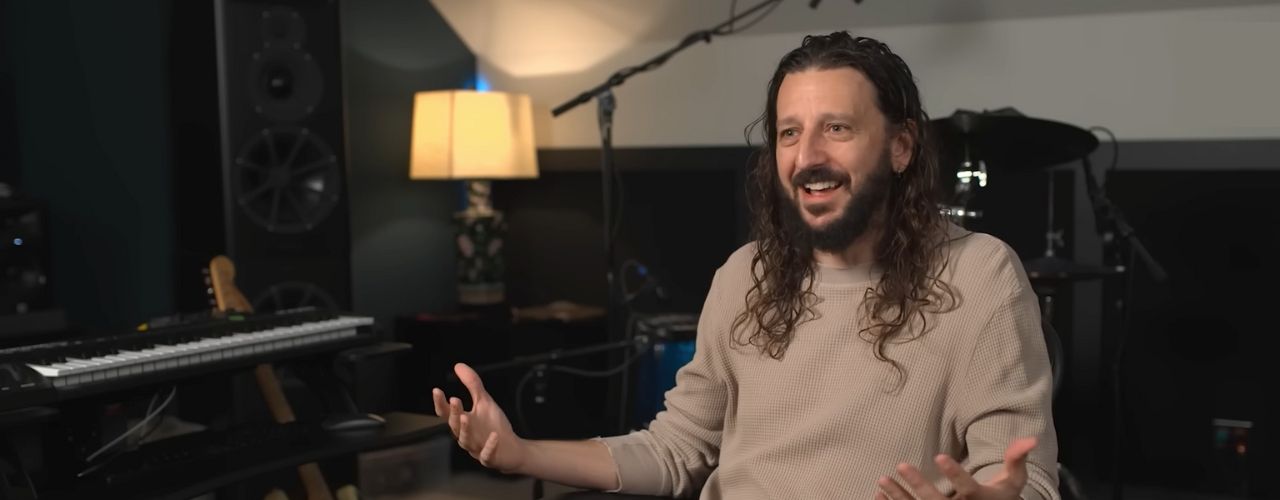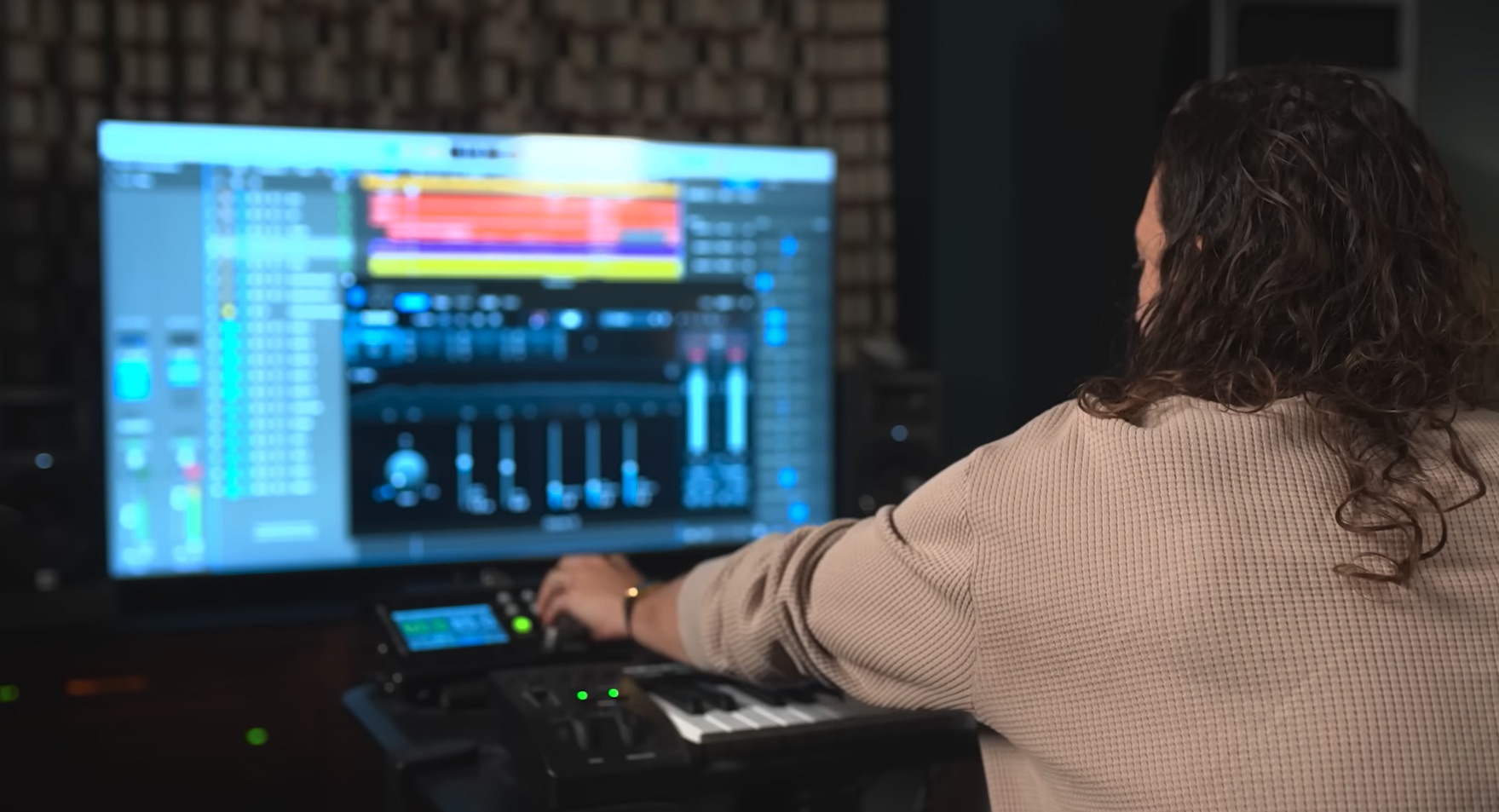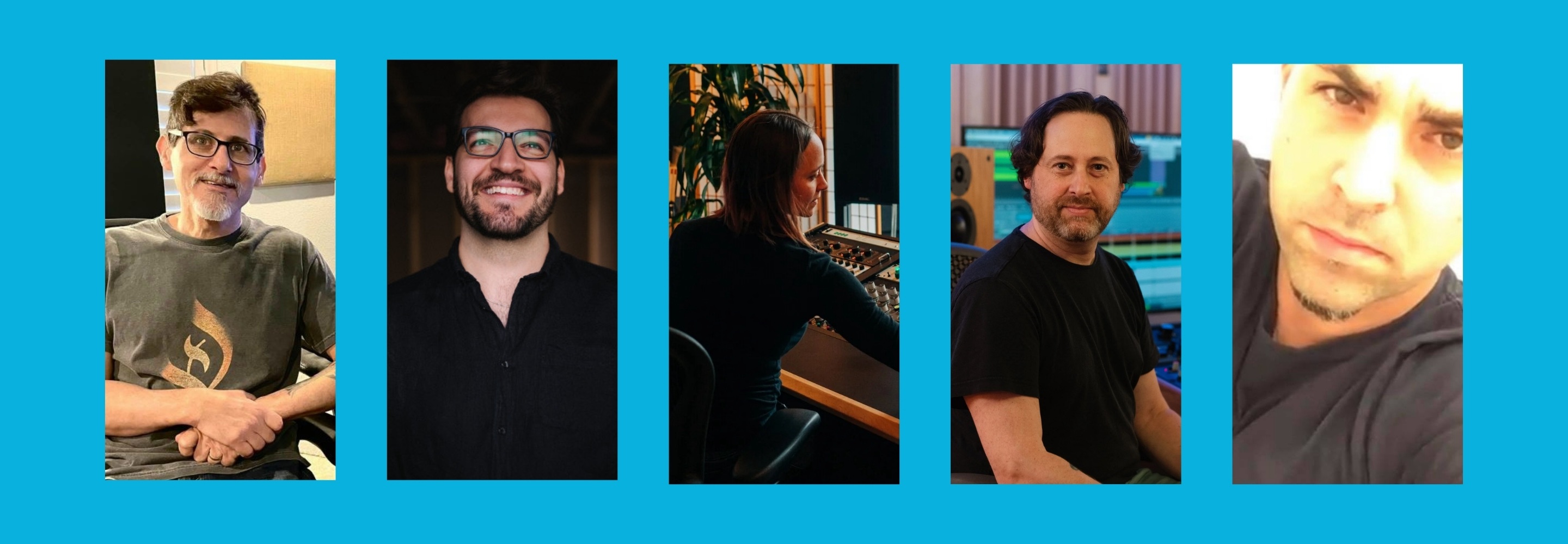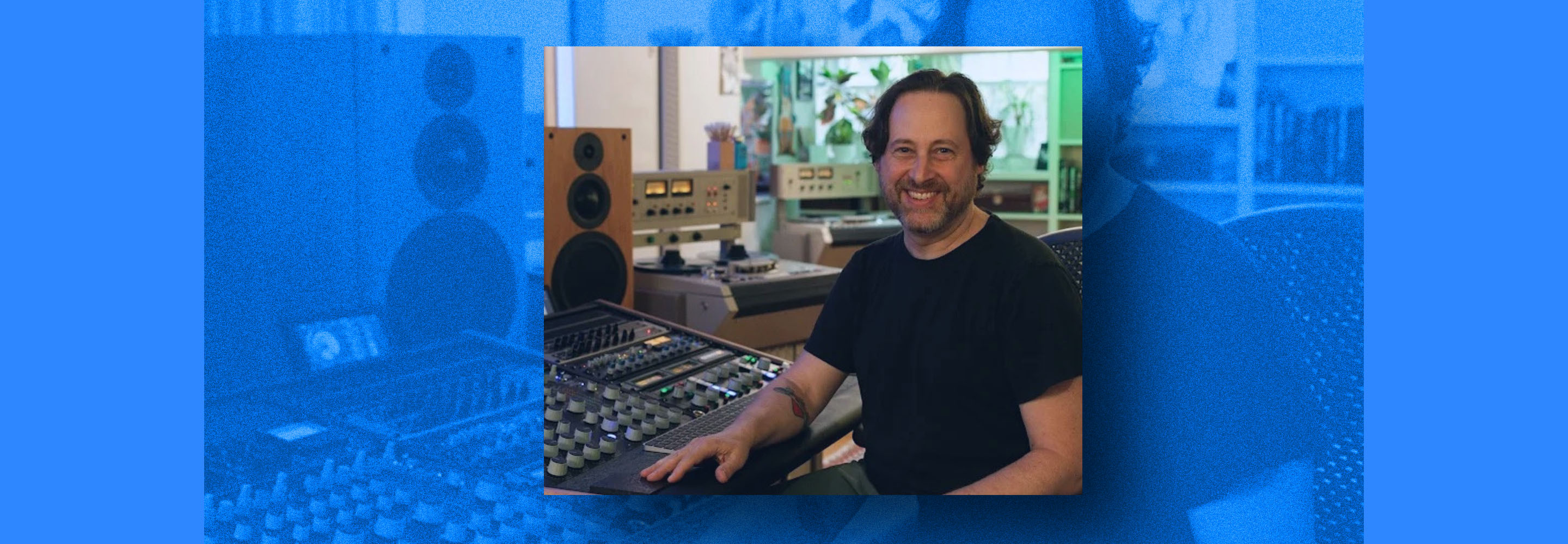
Julian Bunetta on the art of the perfect song
Julian Bunetta (Sabrina Carpenter, One Direction, Thomas Rhett) speaks to us about emotion, chemistry, and chasing the perfect song, and the iZotope tools that help him capture goosebump moments.
If your song isn’t making people pick up the phone and call somebody, Julian Bunetta says, “your song’s not good enough. You’ve got to do better.”
The Grammy-nominated songwriter and producer behind Sabrina Carpenter’s “Espresso,” Teddy Swims’ “Lose Control,” and One Direction’s “Story of My Life” has built a career on feel, connection, and relentless curiosity.
We sat down with American Songwriter and Julian in his Los Angeles studio to talk about finding his sound, reading the room, and why emotion is the only true measure of a song.
Julian uses


Ozone Advanced
You grew up surrounded by music. What were those early days like?
By the time I sort of became sentient, I already knew how to play drums. I came home after school every day, put my headphones on, and played along to an album before I did my homework. That’s just what I did.
Then I learned piano and started kind of tinkering. My friend got Logic when I was in high school, and that made me go, “Whoa!” So I’d go to his house every day after school.
The first song I ever made was a cover of Superwoman by Stevie Wonder. I brought it home to my dad like, “Check this out.” That Christmas, I got Logic, a little keyboard, and some speakers. Then I was like, “Okay, this is what I want to do.”
Was there a specific point when you realized you could do this kind of thing?
Yeah. After I wrote my first song by myself, that was when I had the big “aha” moment.
A trip to Sweden got canceled when I was 19. I didn’t tell any of my friends that I didn’t go, I just stayed by myself. I was so bummed. But that was the first night I wrote lyrics and sang a song I wrote.
I was like, “Wow, I can put my voice on stuff, and I have a voice, and I have a say in the way the melody comes out and the way the words come out.”
From that moment on, my whole focus became: first the melody and the lyric. The track was secondary. It was like, whatever – pull up whatever drum, I don’t care. I care about this chorus first. We’ve got to get this. All the rest doesn’t matter.
You’ve worked across genres – pop, R&B, country. Does your process change depending on the style?
I’ve had different processes throughout my career. With country, a lot of times it starts with the title. With R&B, it might start with chords. Pop might start with the track. But it doesn’t always have to.
There’s always something in the room. Either someone’s not saying what’s on their mind and you need to notice and probe them, or someone is saying what’s on their mind, but maybe you’re talking over them because you also want to tell your story.
Sometimes you’ve got to learn to shut up.
You’re trying to capture a genuine moment of connection or curiosity or sadness. You can manufacture them, too – like, “We’re going to write a sad song today,” and you just go there, tap into your sad selves, and do it. Sometimes you nail it. Most of the time, you don’t.
Some of your biggest songs have come from great chemistry. What do those sessions feel like?
I first started working with One Direction because I was asked to work on The X Factor when it came to America. Simon Cowell had his record label A&Rs working on the show, too. When the show ended, he said, “Hey, do you want to write some songs for One Direction?”
I brought in a writer I had just signed, John Ryan. We had that magic chemistry thing – it was like popcorn. You couldn’t even gather all the ideas fast enough. That’s how that happened.
With Sabrina Carpenter, it was the same. A songwriter I work with a lot, Steph Jones, introduced us. We wrote "Nonsense" and "Espresso" together. Steph was like, “Hey, I think you’d really like Sabrina – she’s hilarious, she’s amazing, she’s funny.”
She was right. The three of us in a room – just yappy and fun and jokes. Sometimes it’s just that magic chemistry.
You’ve said a song should make people feel something – that if it doesn’t move you, it’s not there yet. What does that mean to you?
When a song comes through the speakers, right? It either gives you goosebumps or it makes you cry – or it doesn’t. The end. Period.
When you write an amazing song, it just finds its way. People go, “Oh, I’ve got to send this to my friend.” It’s that simple.
So it’s my job to move you. If you’re not moved to send it to someone you know, guess whose fault it is? It’s mine. The end, period.
What would you tell someone trying to break into songwriting today?
If you want to get into the industry and you’re a songwriter, you’d better write a song as good as “Rolling in the Deep.” You’d better write a song as good as “Teenage Dream.”
It’s your job. You’re the songwriter. It’s nobody’s job to like your song – it’s your job to make me like your song.
You’ve got to work super hard. You’d better rewrite and rewrite and work and work – because I am. I’m your competition.
There’s one slot on this. This artist needs one single. Is it going to be yours or mine?
You’ve said iZotope is part of every session. What makes these tools so essential for you?
iZotope is on every master chain of mine – sometimes two if I’m feeling really spunky.
iZotope Ozone can manipulate sound and give me the grit I want, or the sparkle, or the compression I want. It just has so many things you can do.
It was everything I wanted, all in one plugin. It’s made for how you’d want to use it – intuitive and functional. It feels like they’re reading my mind. That’s what it feels like when I’m using it.

I use iZotope Trash on everything – background vocals, acoustic guitars, I’ve even used it on the master or lead vocal. And VocalSynth 2 – that’s the go-to vocoder. You’ve got so many textures and options.
You just throw it on, crunch it to 100% full wet, and see what happens. Then back it off. You can always pull back.
If you’ve got a hammer and a nail, you don’t just tap it – you go boom and see what it does. Same thing with plugins.
Tell us about Big Family – what’s the vision behind it?
With our label Big Family, we just want to find really creative people who have something special and unique – and help magnify that thing.
Not, “That doesn’t sound like what’s on the radio right now, write more like this.” No. Whatever your thing is – that’s what makes you special. We should amplify that.
You should stick out in a sea of writers because of your thing. That’s what people will come to you for. Music changes. People will want what you have because it’s unique.
What keeps you inspired after all these years?
Everybody knows what it was like when they heard that one song – the one that made them disappear for three minutes. That’s our job.
Somebody did that for you – Stevie Wonder, Frank Sinatra, whoever. You’ve got to have that experience, and now it’s your duty to give that to somebody else. Some kid in their bedroom, headphones on, disappearing from the world. You’ve got to go do that for them.
If you want to do this for a job – if it’s your business, your lifeblood, the thing that pays your rent – you’ve got to want it.
You’ve got to be self-motivated to keep getting better. You’ve got to be smart about who you surround yourself with. And you’ve got to give it everything.
There’s no guarantee. It’s scary. But it’s the best thing in the world. The best job in the world.
Wrapping it all up
Chasing a feeling is what matters for Julian Bunetta’s songwriting. With massive names under his belt like One Direction, Sabrina Carpenter, his measure of success remains: does it move you?
That mindset has carried him from his teenage Logic sessions to some of the biggest songs in pop. And even now, surrounded by the tools and collaborators that bring his ideas to life, his focus remains simple. Make something honest, make something that lasts, and never stop pushing for that goosebump moment.


